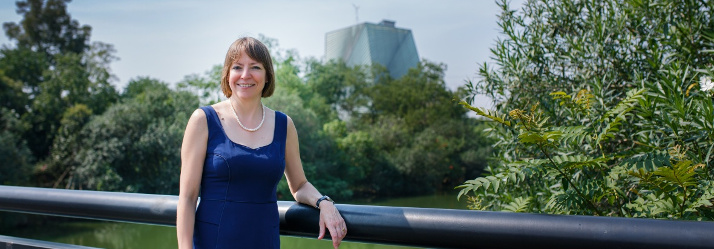
Happy New Year and welcome to the new term! I hope that everyone was able to get some rest and time with family and friends over the recent holiday season.
One of my first external engagements since Christmas was joining a panel of MPs and experts at the launch of the HEPI/Kaplan sponsored report on the Economic Benefits of International Students. I would like to devote this month’s blog to the implications of this report and the benefits that international students bring to the University of Nottingham.
The report proved that there is an overall 1:10 cost/benefit ratio to local economies of international students in the UK as a whole. Based on analysis of 231,000 international students registered at UK universities in 2015-16, this is an astonishing ratio and one that the lead author of the report had rarely seen in similar work performed with private companies and other organisations.
Presenting the data at the level of every parliamentary constituency in the UK, the report implicitly reveals just how important international students are for some areas of the UK that otherwise have struggling economies.
It was pleasing to see that the Nottingham South constituency was ranked third highest in the UK in terms of the economic benefit of international students to our community. This is reflected in our own economic impact study where we have found that each year our 9,000 international students studying in the UK generate: £130 million for the national economy; 2,200 jobs locally; and a further £2 million in spending by friends and family visiting them. I imagine that any similar study of international students at UNNC and UNMC would yield equally positive results.
The HEPI/Kaplan report focused only on direct economic value. In my presentation at the HEPI launch, I and other speakers outlined a different - and equally important - kind of value. The report explicitly does not tackle contribution to tax and national insurance, soft power, long term investment and business links or wider social and cultural impact.
International students come to our country; they pay large fees for their education; they contribute to local economies both directly and indirectly; they help create a cosmopolitan environment that is enriching for all students; and they are more likely to volunteer in the local community. They go back to their home countries, take up leadership positions and retain an affection for the UK which leads to business, political and cultural partnerships in all professional spheres. We should cherish their enormous value for our University life.
There have been some welcome recent signs that this may be being recognised by government. Shortly before Christmas, the University of Nottingham was among an additional 24 Universities invited to join the second phase of the Tier 4 pilot visa scheme, allowing international students to stay in the country longer after graduation and to submit less evidence in order to work here.
Furthermore, the Migration Advisory Committee (MAC) is consulting on the economic and social impacts of international students. The deadline for submissions is 26 January, and we are hoping that the overwhelming evidence of benefit will enable the government to make decisions that will ensure that the UK remains an attractive place to study and work for students from other countries.
I have recently had conversations with Alan Holey, President of our Students’ Union, and many colleagues about how we can better support our students in general, and our international students in particular. We all agree that the transition period of coming to Nottingham for the first time - whether you are a fresher or an international postgraduate student - can be a daunting experience.
I have asked Breda Walls, the Chief Student Management Officer, to convene a task group, working with PVC Education & Student Experience Sarah O’Hara, the Students Union, Campus Life, hall wardens, and senior tutors. This will consider how we can ease the transition for all our students, but with particular sensitivity to international students studying in the UK for the first time. More information about this will be forthcoming in due course.
Posted on Monday 22nd January 2018